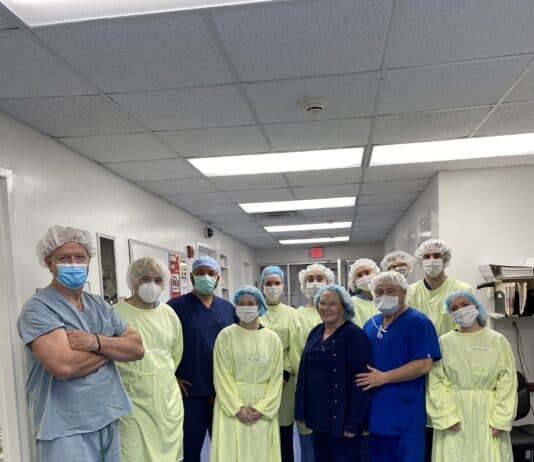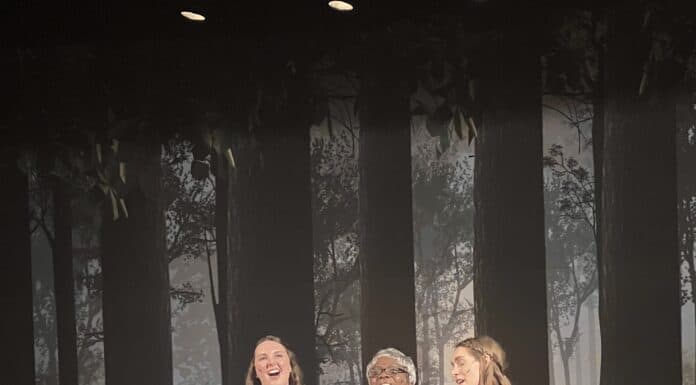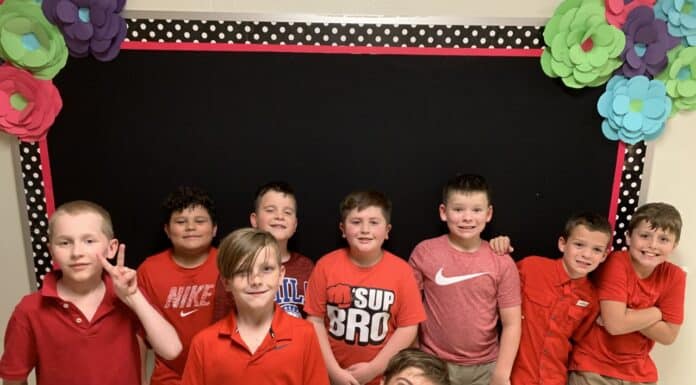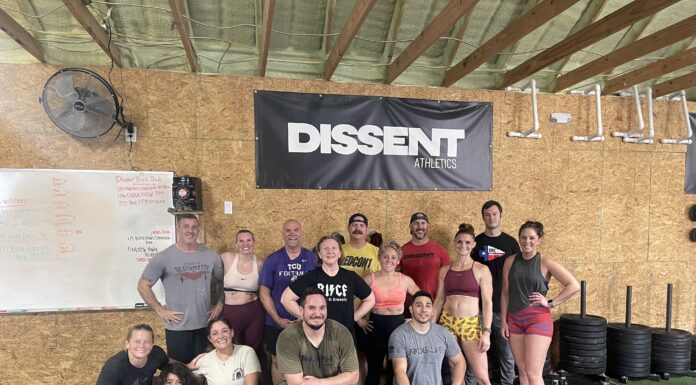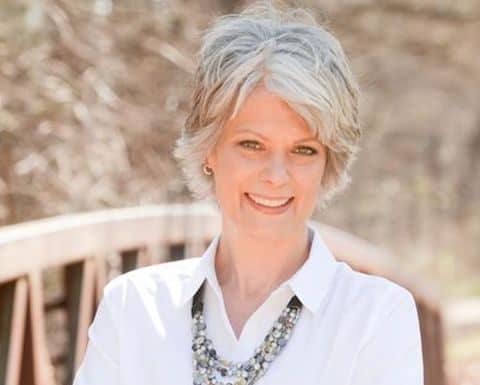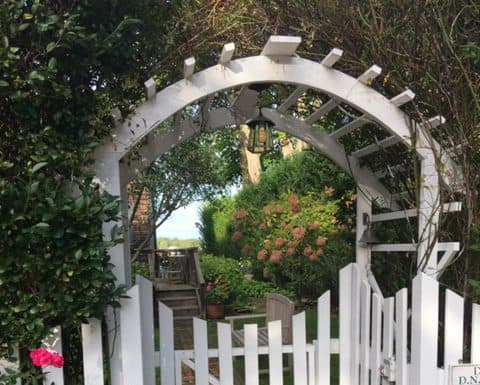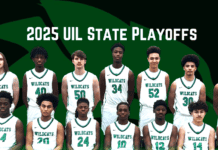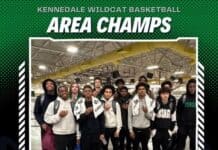Officer James Crouch, KPD
Earlier this year, James Crouch, celebrated a half of century in police work. During his career, he has gone from Tarrant County Sheriff?s Department to Fort Worth to Arlington and finally to Kennedale PD.Besides the long career, what also is unusual about his law career is the fact that over half of that time, he never received a paycheck. {{more: Read more …}}
Crouch has been shot at nine times and never been hit. He worked the streets on patrol. He has worked in forgery, computer crimes and child pornography units and has been a firearms instructor for 28 years. He still says he doesn?t regret a minute of it.Recently Officer Crouch sat down with the Kennedale News to talk about the last 50 years.
Polly boy …
Crouch was born and raised in Fort Worth in the Poly area on Strong Street, just three 3 houses away from Poly Theatre. He went to William James, graduated from Poly High School and, later at the age of 38, he got his college degree from Texas Wesleyan University, all within blocks of each other.
“There were two things I wanted to be since I was 6 years old, to be a cop and play the violin.” He laugh and said, “I have accomplished both of them.”
“I wanted to play the violin because we had a next door neighbor who played and I would sit down by the fence and listen. He would play the violin by the hours, it was so pretty. And, I said someday I want to do that. I took lesson for eight years. I still play but I don?t even play in front of anyone, just for myself.”His long law enforcement career started on May 20, 1967 when he joined the Tarrant County Sheriff?s Department as a reserve officer at the age of 24. At the time, Crouch was under age because 25 was the minimum age, but he finally had ?pestered them enough,? that he was accepted.
No pay but the rest was the same …
After getting accepted by Tarrant County, he worked the next twenty years as a reserve officer moving to the Fort Worth Police Department reserves in 1968 and serving there until 1987. As a reserve officer he wore a uniform, carried a weapon, patrolled the streets, issued tickets and made arrests.
?The only difference,? said Crouch, ?was the regular officer received a paycheck and the reserve officer didn?t.?
His day job paid too much for him to join the regular police force. All that change in 1987, when he decided that he was in a position to make a change, even though he had to take a $10,000 pay cut to join the Arlington Police Department.
44 and finally a paycheck in law enforcement …
?I worked for 25 years in Arlington. I was a reserve sergeant in Fort Worth and made sergeant in Arlington. In 1999, I was selected to head up a forgery unit in Arlington and then I created a computer forensics unit investigating computer crimes including child pornography and I did that for 13 years before going back to the patrol for a few years before I retired.?
Not one to accept retirement, he went back to work as a reserve officer for the Kennedale PD in 2013, working a couple days a week. (If you are added up the years, that makes him 74).
?I have been a firearms instructor for 28 years and that is what do here at Kennedale.” Couch added, “And, I help them out on a few cases when they need it, too.?
180 degree in society in his time …
The changes in society has been 180 degrees since he has started according to Crouch. “Respect for authority has diminished and the police officer has suffered.”
He agreed that it is not Andy Griffin?s Mayberry anymore, if it ever was.
Back when he started, it was an age where you just didn?t smart off to an officer, according to Crouch. If you decided to bow-up to an officer, you faced the consequences.
?But, that has changed and policing has gotten smarter,” he said. ?And to be honest in a lot of ways it is a lot better and in some ways it is not so good.?average citizen rarely has contact with police …
For the most part explained Crouch, the average citizen never has contact with a uniform officer unless it some minor issue such as a speeding violation or unless they need some help. Most people go years without seeing or talking with officer in an official capacity, but when they do, it is generally in a negative situation.
This is just part of the challenges that police face today according to Crouch. They have the huge majority of people that they rarely see, if at all, and then the much smaller group that they see often maybe weekly or even daily.
?They [the officers] now days, really have to be able to differentiated between the two and respond appropriately.”
One group can pose a serious threat of possible violence and the other not at all. And, that is even now more complicated because of the many cultural differences that an officer face in today’s diverse communities. They have to understand the culture norms including the street lingo and the day to day living situations in the various areas they work.
?The officer has to learn to do that and how to talk to them without seeming to be talking down to them,? said Crouch.
An officer really wants to be a positive influence on those they deal with but as Crouch said, ?One of the biggest problems is that they [the ones police have contact with] have greater influences in their lives than the few minutes that you [the officer] can spend with them.?
not all danger, mostly routine …
It is not dangerous all the time, mostly it is just routine. But. over the course of a lifetime, you can have your moments.
?I have been shot at nine times, never been hit. I was shot at a couple of times going on bogus calls where you would get a calls that may end up end say on a dead street. You get out to investigate and then get back into the patrol and someone in the bushes or wherever takes a shot at you.?
He said that he never considered giving it up after those incidents.?As the old adage says, if you love what you do, you never work a day in your life. I have always loved what I do.?






